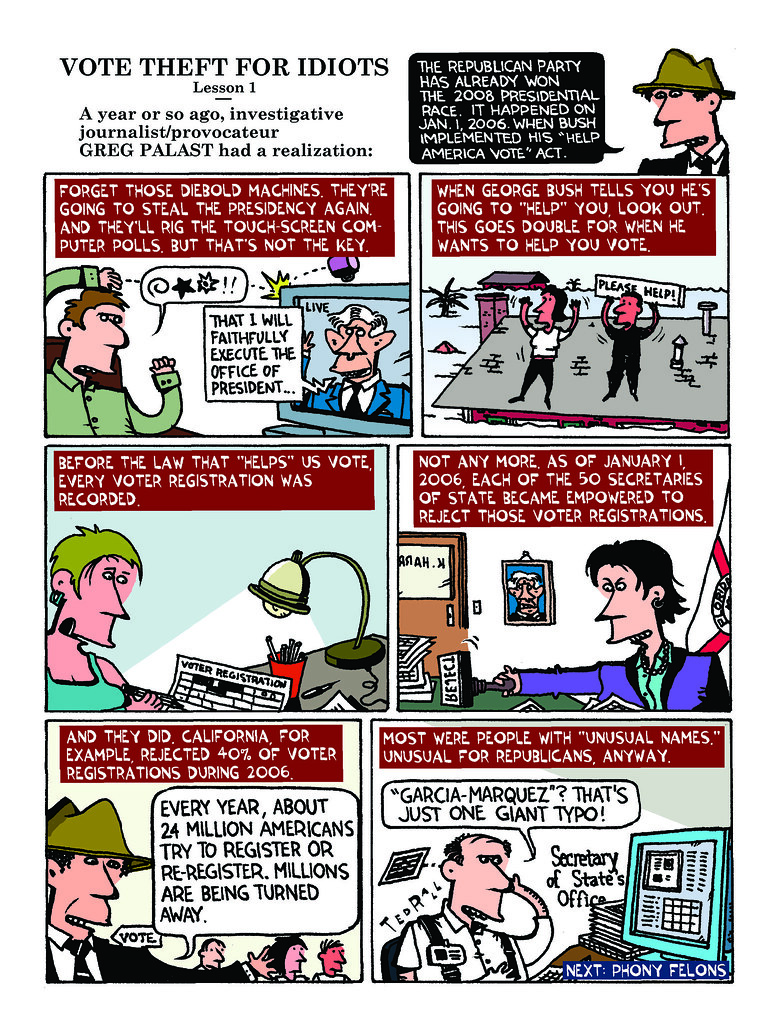By Robert Kuttner, Co- Editor of The American Prospect;From Today's Huffington Post Treasury Secretary Hank Paulson spent the past two weeks playing a game of chicken with firms like Lehman Brothers and A.I.G. Now he is playing even higher-stakes chicken with Congress and the economy.
Paulson's storyline is that the credit markets are frozen, and unless Congress passes a "clean bill" -- his way -- disaster lies ahead. He spent a busy Sunday morning on the talk shows ducking questions on what would happen if Congress didn't act -- and what might still happen if it did.
One senior Congressional Democrat told me, "They have a gun to our heads." Paulson behaved as if he held all the cards, but in fact the Democrats have a lot of cards, too. The question is whether they have the nerve to challenge major flaws in Paulson's plan as a condition of enacting it.
Paulson also faces serious defections in Republican ranks, with several key senators and congressmen resisting a bailout of this scale. Sen. Richard Shelby, the ranking Republican on the Senate Banking Committee, speaking on CBS's Face the Nation, flatly blamed the crisis on greed and deregulation, and questioned the terms of Paulson's plan.
Paulson's bill would give him carte blanche to spend up to $700 billion over the next 24 months to buy toxic securities from financial firms. This presumably would "unclog" capital markets, the financial economy would begin functioning normally again, and then the government would recoup what it could.
The plan is outrageous on several levels. It demands nothing from these firms in return. It holds the Treasury Secretary accountable to no one. And it extends the most generous terms to Wall Street while offering nothing to Main Street.
House Financial Services Chairman Barney Frank, speaking Sunday morning on "Face the Nation," gave the flavor of what Democrats will demand, if they hang tough: An economic stimulus to go with the Wall Street bailout; more refinancing help for borrowers; and some limits on windfall gains to corporate executives. These provisions would improve the bill, and Democrats would win either way: if they were included, more help would be on the way to working families. If they lost, and the bill passed without these provisions, it would make crystal clear the difference between the parties.
Ideally, the Democrats should go even further.
The bailout bill should be explicitly tied to a commitment to re-regulate all types of financial institutions. The bill's authority should expire after six months, so that when the next Congress re-authorizes any bailout authority it would be combined with tough comprehensive regulation.
Any private company that sells assets to the Treasury should be subjected to stringent limits on executive windfalls.
The government should get an equity position in the firms it helps, proportional to the help that it gives.
Treasury should be authorized and directed to take controlling interest in some firms, and take over their management, if of course that provides the greatest potential savings to taxpayers. For example, when an FDIC-insured bank goes broke, the FDIC either merges it into a healthy bank, or takes it over and runs it for a time while it pays off depositors, to make sure that it is run properly. It does not just bail out the incumbent management that created, and profited from, the mess.
There should be a recapture provision, so that if firms end up profiting from this bailout, the government gets its money back.
Part of the $700 billion should be for mortgage refinancing, and authority for cities and towns to acquire foreclosed properties and put buyers and renters back in them.
The package should include at least $200 billion of new economic stimulus, in the form of aid to states, cities, and towns, for infrastructure rebuilding, more generous unemployment and retraining benefits, and green investment.
The Democratic leadership should force Republicans to take votes on provisions like these. The early signs were that they would be pushing hard for a two or three.
Yesterday, a key lobbyist for the financial services roundtable, Scott Talbott, warned, "We're opposed to adding provisions that will affect [or] undermine the deal substantively," The Roundtable's members are banks, securities firms and insurance companies, the prime beneficiaries of Paulson's proposed bailout. He warned that any effort to attach other provisions would be a deal breaker.
But excuse me, it is the financial industry that is coming hat-in-hand to the government, not vice versa. The industry has no leverage here, except to the extent that Congress lets itself be intimidated. Paulson is insisting on a "clean" bill, but as Barney Frank put it, helping Main Street as well as Wall street does not dirty the bill.
The two precedents for large scale bailouts, Franklin Roosevelt's Reconstruction Finance Corporation, and the Resolution Trust Corporation of the 1980s, gave government much more authority over the firms that it bailed out.
Paulson is playing this more as the investment banker that he used to be, than as a steward of the public interest. This is a dubious deal, with all the gain going to Wall Street and all the risk going to taxpayers. Congress should not be intimated by his threats to hold his breath and turn blue of he doesn't get his way.
---
Robert Kuttner, co-editor of The American Prospect and Distinguished Senior Fellow at Demos, has just published Obama's Challenge: America's Economic Crisis and the Power of a Transformative Presidency (Chelsea Green). He is blog



